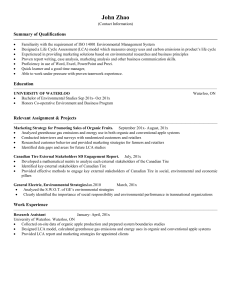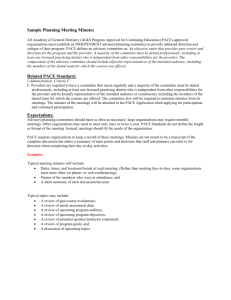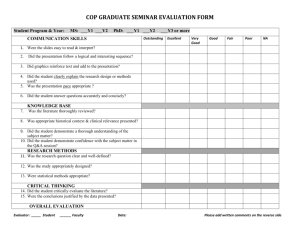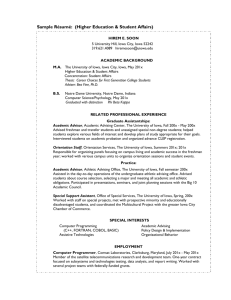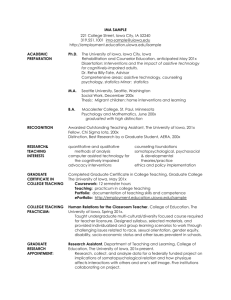Sample Organizational Goals - Academy of General Dentistry
advertisement
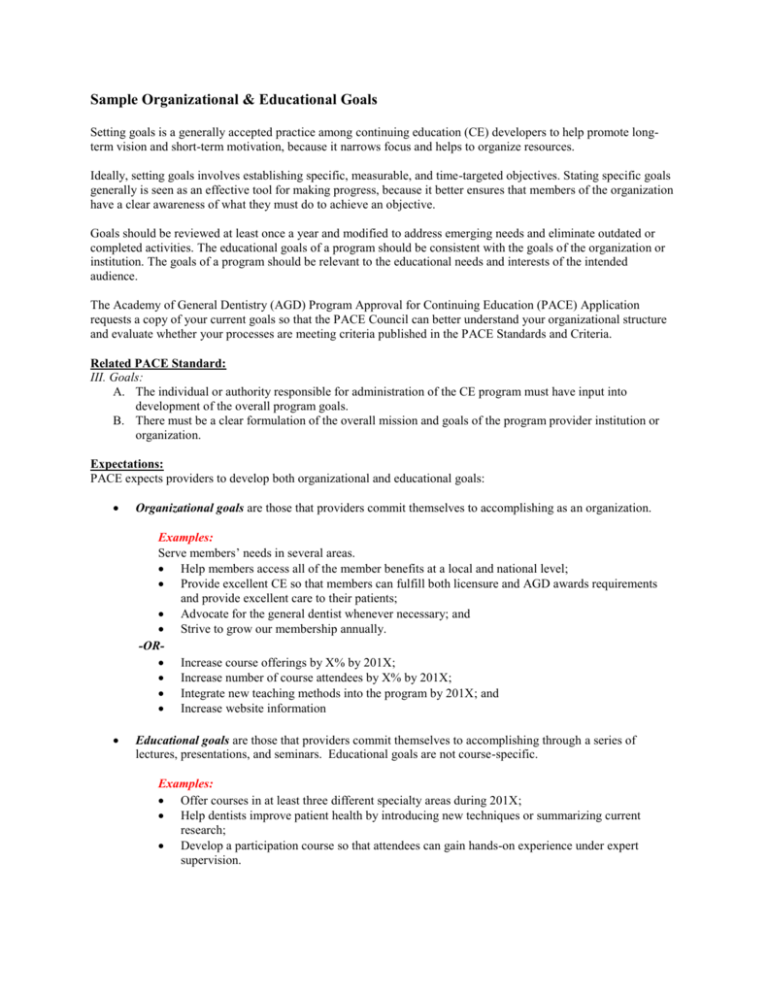
Sample Organizational & Educational Goals Setting goals is a generally accepted practice among continuing education (CE) developers to help promote longterm vision and short-term motivation, because it narrows focus and helps to organize resources. Ideally, setting goals involves establishing specific, measurable, and time-targeted objectives. Stating specific goals generally is seen as an effective tool for making progress, because it better ensures that members of the organization have a clear awareness of what they must do to achieve an objective. Goals should be reviewed at least once a year and modified to address emerging needs and eliminate outdated or completed activities. The educational goals of a program should be consistent with the goals of the organization or institution. The goals of a program should be relevant to the educational needs and interests of the intended audience. The Academy of General Dentistry (AGD) Program Approval for Continuing Education (PACE) Application requests a copy of your current goals so that the PACE Council can better understand your organizational structure and evaluate whether your processes are meeting criteria published in the PACE Standards and Criteria. Related PACE Standard: III. Goals: A. The individual or authority responsible for administration of the CE program must have input into development of the overall program goals. B. There must be a clear formulation of the overall mission and goals of the program provider institution or organization. Expectations: PACE expects providers to develop both organizational and educational goals: Organizational goals are those that providers commit themselves to accomplishing as an organization. Examples: Serve members’ needs in several areas. Help members access all of the member benefits at a local and national level; Provide excellent CE so that members can fulfill both licensure and AGD awards requirements and provide excellent care to their patients; Advocate for the general dentist whenever necessary; and Strive to grow our membership annually. -OR Increase course offerings by X% by 201X; Increase number of course attendees by X% by 201X; Integrate new teaching methods into the program by 201X; and Increase website information Educational goals are those that providers commit themselves to accomplishing through a series of lectures, presentations, and seminars. Educational goals are not course-specific. Examples: Offer courses in at least three different specialty areas during 201X; Help dentists improve patient health by introducing new techniques or summarizing current research; Develop a participation course so that attendees can gain hands-on experience under expert supervision.
![[To be used for onward Committee Reporting only] [Insert/delete as appropriate]](http://s2.studylib.net/store/data/012380681_1-c83bd55e770cd13681e2ed0a4810a60a-300x300.png)

